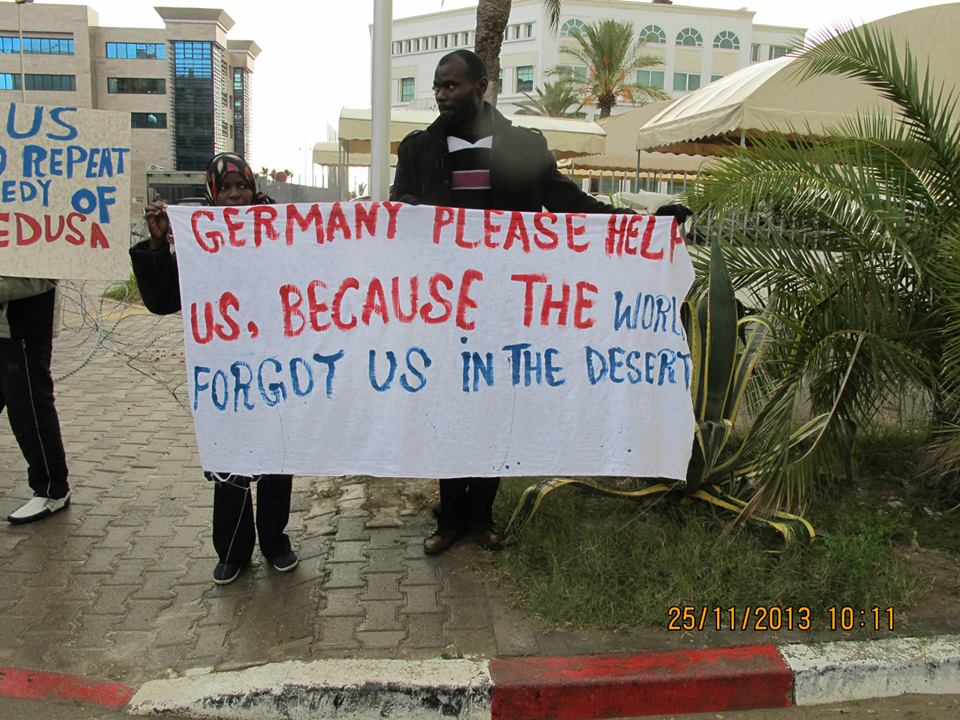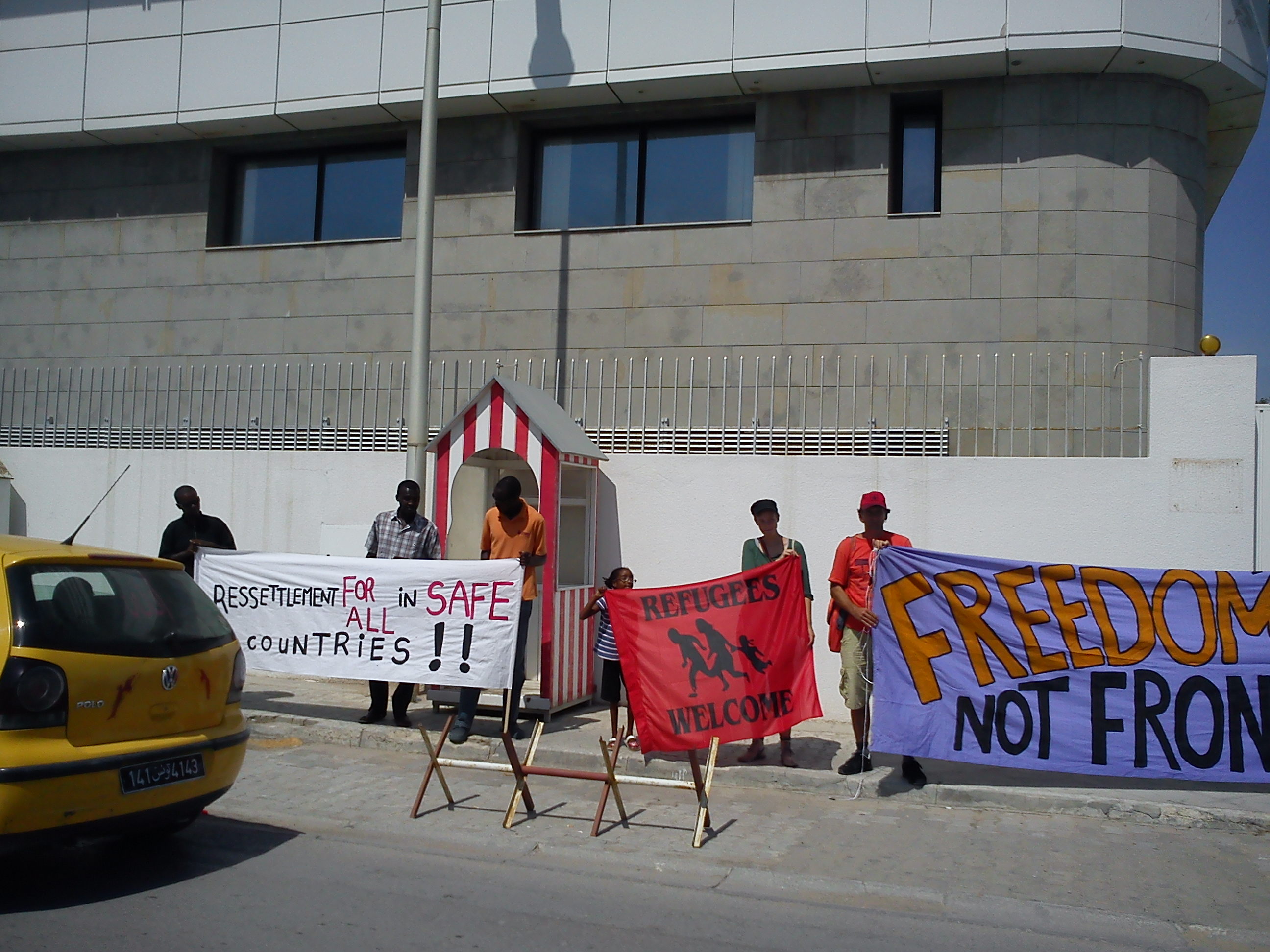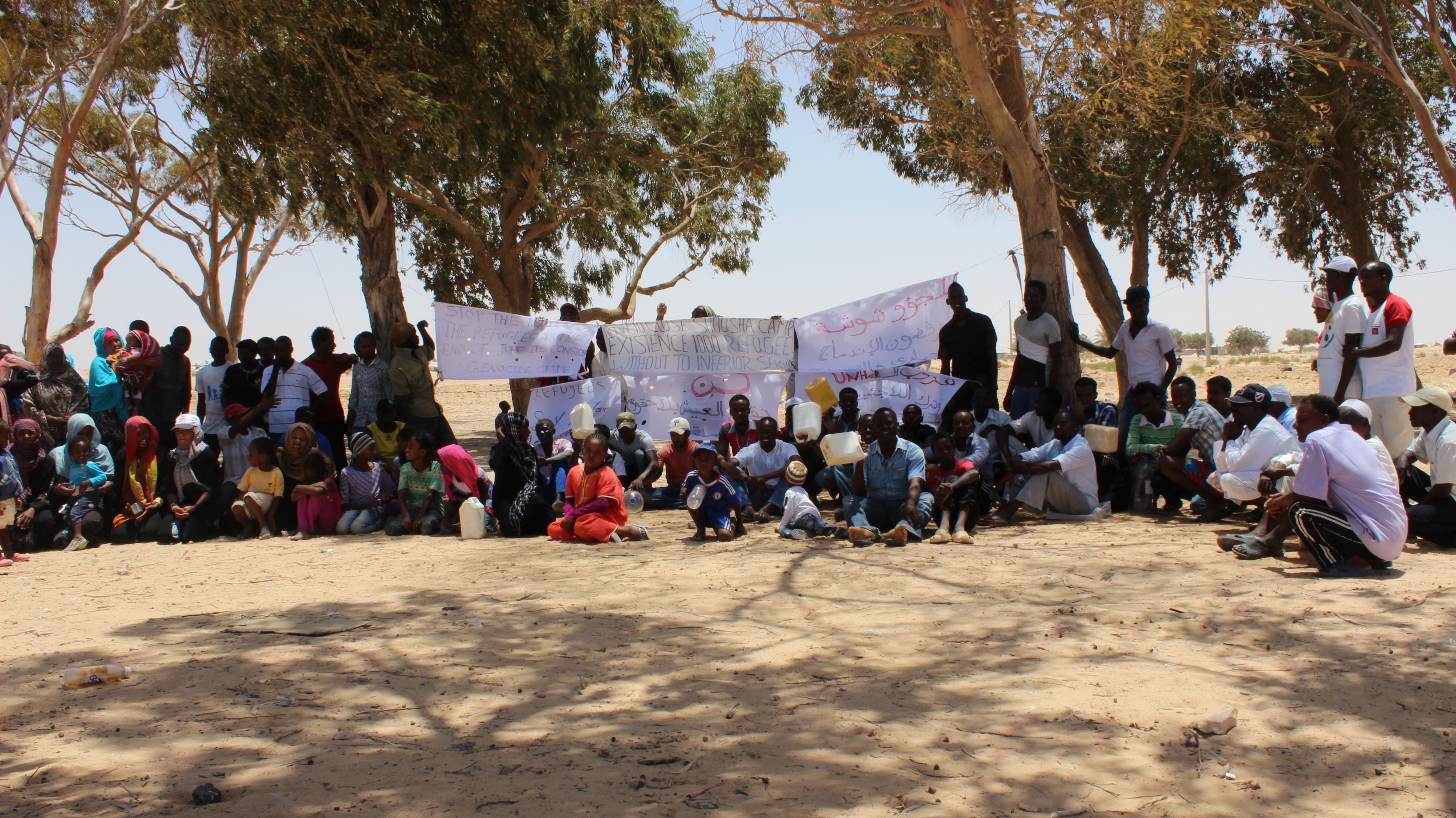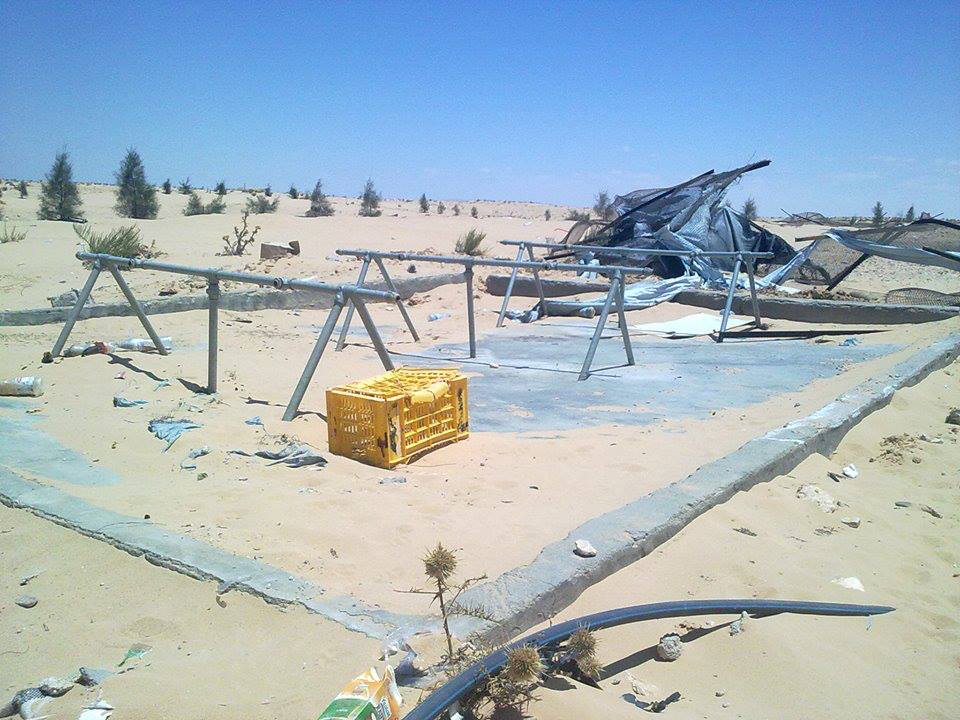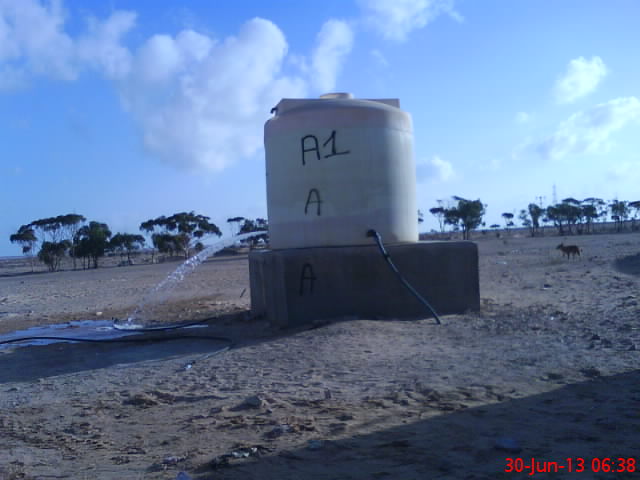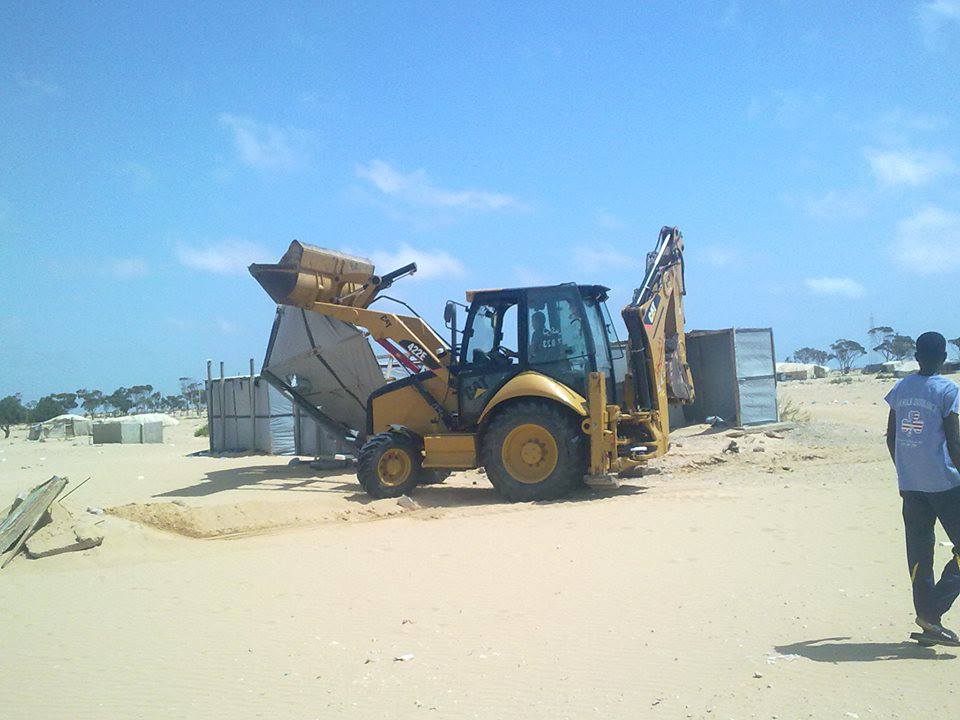Today, 28th of June, Members of different networks working on migration politics have published a press release about the closure of the Choucha Camp. Although it is only in german, we want to publish it here. Feel free to distribute it!
Pressemitteilung vom 28.6.2013
Zurückgelassen in der Wüste: Bevorstehende Schließung des Flüchtlingslagers Choucha in Tunesien
In drei Tagen, am 01.07.2013, soll das Flüchtlingslager Choucha im Süden Tunesiens geschlossen werden. Anerkannte Flüchtlinge sowie abgelehnte Asylsuchende bleiben ohne Versorgung ihrer Grundbedürfnisse zurück. Europa verweigert weitere Aufnahmen.
Das Flüchtlingslager Choucha liegt an der tunesisch-libyschen Grenze in der Wüste. Es wurde im Februar 2011 vom UNHCR (Flüchtlingskommissariat der Vereinten Nationen) errichtet für Menschen, die als ArbeitsmigrantInnen oder Transitflüchtlinge in Libyen gelebt hatten und seit Beginn des NATO-Kriegs vor den Bomben und vor Massakern vor allem an Schwarzen über die tunesische Grenze flohen. Während ein Großteil der über 20.000 Geflüchteten entweder mehr oder weniger freiwillig in ihre Herkunftsländer zurückgekehrt ist und ein kleiner Teil durch so genanntes Resettlement in Drittstaaten umgesiedelt wurde, werden nun etwa 500 Personen zurückgelassen. Die abgelehnten Asylsuchenden werden jeglicher Zukunftsperspektive beraubt und finden sich in Tunesien in der Illegalität wieder. Anerkannte Flüchtlinge, die aus verschiedenen Gründen nicht zum Resettlementprogramm zugelassen wurden, sollen in Tunesien lokal integriert werden. Jedoch bietet Tunesien weder eine ausgearbeitete Asylgesetzgebung, die den Flüchtlingen einen Aufenthaltsstatus und damit den Schutz ihrer Rechte zusichern würde, noch ist die Gesellschaft schwarzen Menschen gegenüber offen. Die Flüchtlinge berichten von unzähligen rassistischen Anfeindungen und Übergriffen. Ihre Lebensrealität in tunesischen Städten wäre von Isolation, Ausgrenzung und einem rechtlichen unsicheren Status geprägt. Außerdem ist die politische Lage in Tunesien seit der Revolution sehr instabil und die Arbeitslosigkeit immens.
Aus Protest gegen die Illegalisierung beziehungsweise Isolierung in der tunesischen Gesellschaft haben die Flüchtlinge entschieden im Camp zu bleiben. Unklar ist, wie UNHCR, das tunesische Militär, dem das Gelände gehört, und die lokale Bevölkerung reagieren werden. Internationale Aufmerksamkeit ist aus diesem Grund dringend erforderlich, um etwaige Ausschreitungen und Anfeindungen gegen die Flüchtlinge, wie sie bereits in den letzten Jahren auftraten, anprangern und dokumentieren zu können. Zudem ist davon auszugehen, dass sich Flüchtlinge dafür entscheiden werden, nach Libyen zurück zu gehen, um von dort die lebensgefährliche Überquerung des Mittelmeers zu wagen.
Bereits seit Wochen wurde die Wasserversorgung im Wüstencamp reduziert. Gestern wurde damit begonnen, alle Toiletten abzureißen. Abgelehnten Flüchtlingen wird seit über einem halben Jahr der Zugang zu Lebensmitteln und medizinischer Versorgung verwehrt. Seit dem 25.06. ist zudem bekannt, dass der UNHCR keinem der Flüchtlinge, die im Camp bleiben, weitere finanzielle Unterstützung zukommen lassen wird. “Wir Flüchtlinge sollen so ausgehungert und dazu gezwungen werden, die lokale Integration anzunehmen”, so Emad M. aus dem Sudan. Mit Protesten und Aktionen im Camp sowie in Tunis, unter anderem während des dort stattfindenden Weltsozialforums im März 2013 und einem anschließenden Hungerstreik vor dem Büro des UNHCR, haben die Flüchtlinge für ihre Forderung nach Aufnahme in einem Land, in dem ihre Rechte garantiert sind, demonstriert – bisher trotz internationaler Unterstützung vergeblich.
Das Vorgehen des UNHCR und der Regierungen der EU-Länder gegenüber den Geflüchteten im Lager Choucha ist skandalös. “Statt Flüchtlingsschutz zuverlässig zu praktizieren, werden ganze Gruppen von Flüchtlingen in
die Illegalität oder zur Weiterflucht gezwungen”, so Conni Gunßer vom Flüchtlingsrat Hamburg. “Die EU lagert mit Unterstützung des UNHCR den Flüchtlingsschutz in Länder an den Rändern Europas aus, hindert durch ihre Grenzschutzagentur Frontex und Abkommen mit Drittstaaten Flüchtlinge am Zugang nach Europa und verwehrt den wenigen hier Angekommenen grundlegende Rechte.”
In Anbetracht der Verantwortung, die die NATO-Staaten gegenüber den Flüchtlingen des Libyenkrieges tragen, ist es dringend notwendig, dass weitere Resettlementplätze für die verbleibenden Flüchtlinge im Lager Choucha bereitgestellt, die Menschen hier aufgenommen werden und Rechte bekommen – so wie es im September 2012 in Deutschland endlich mit 201 anerkannten Flüchtlingen aus Choucha geschah. Die abgelehnten Asylsuchenden fordern weiterhin eine Wiederaufnahme ihrer zum Teil sehr mangelhaft durchgeführten Verfahren und ihre Anerkennung und Aufnahme als Kriegsflüchtlinge.
Wir, Mitglieder verschiedener migrationspolitischer Netzwerke wie Afrique-Europe-Interact, Welcome to Europe und borderline europe sowie von Flüchtlingsräten, lokalen antirassistischen Gruppen und der Forschungsgesellschaft Flucht und Migration (FFM), haben die Geflüchteten im Lager Choucha kennengelernt, unterstützen ihre Forderungen und appellieren an die europäische Öffentlichkeit, sich für die Aufnahme dieser Flüchtlinge einzusetzen. Die Medien rufen wir auf, die Vorgänge nach der angekündigten Schließung des Lagers kritisch zu beobachten und darüber zu berichten.
Kontaktadresse: choucha(a)riseup.net
Telefon: 0173-4108642
Nähere Informationen, Fotos und Videos auf:
http://chouchaprotest.noblogs.org/ und http://afrique-europe-interact.net
Aktuelle Fotos vom Abriss der Toiletten:
https://www.facebook.com/media/set/?set=a.173595386152208.1073741858.118627034982377&type=3

